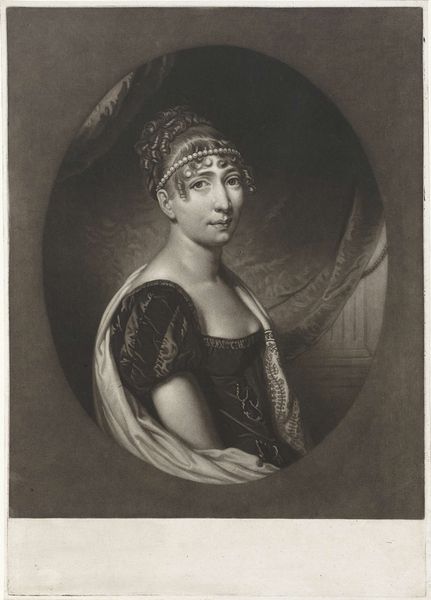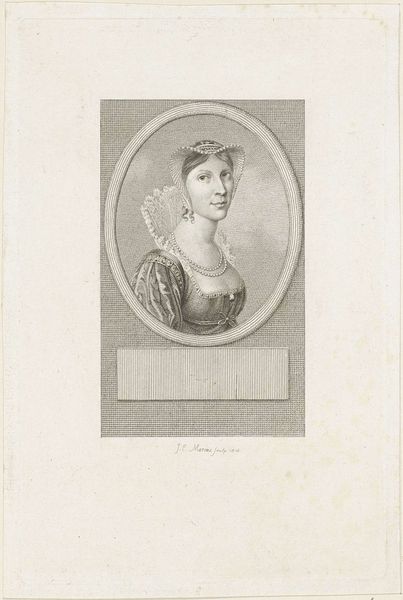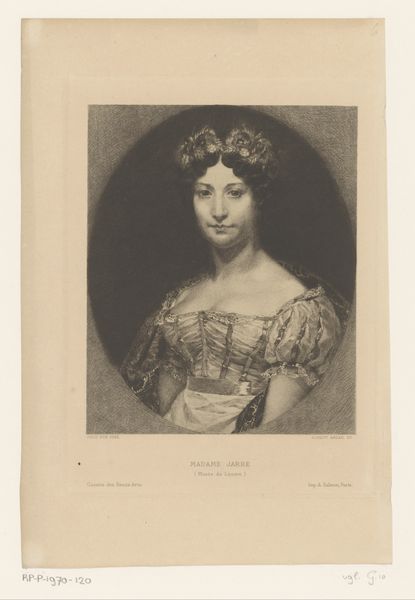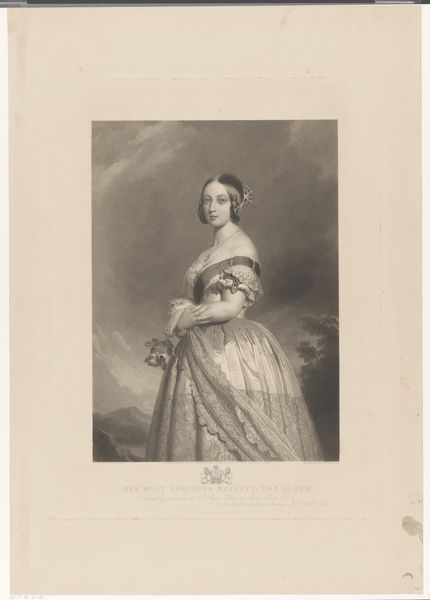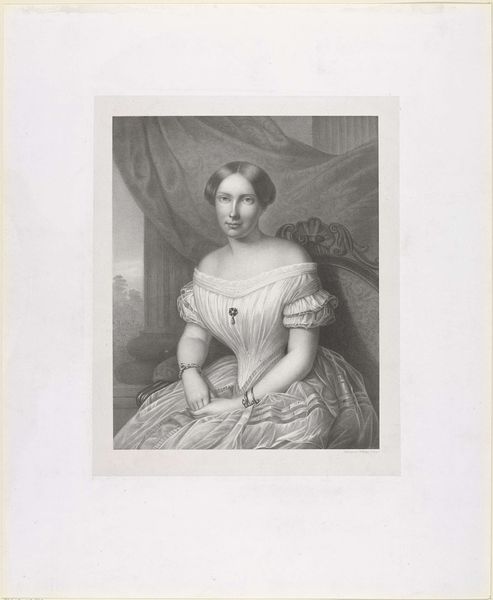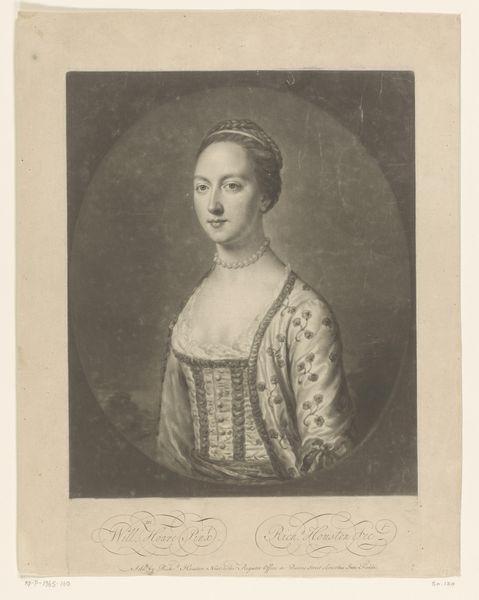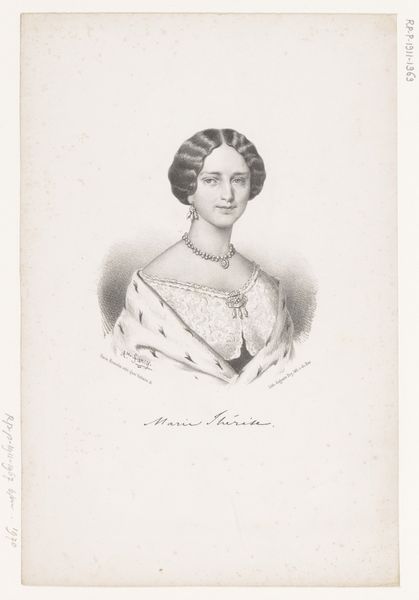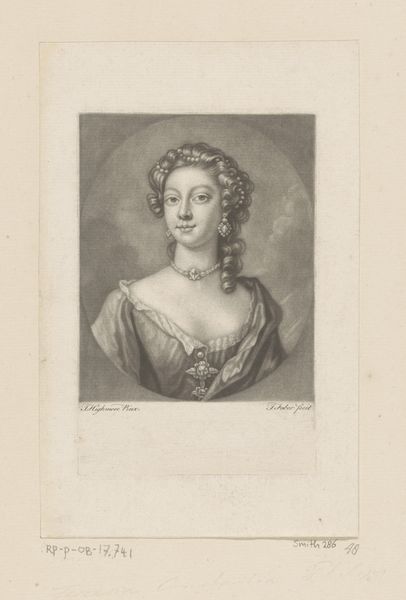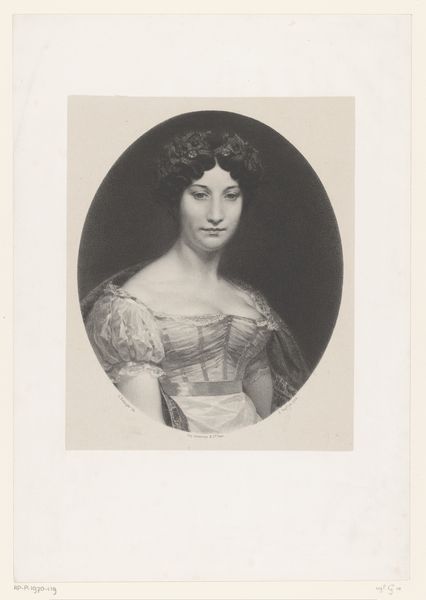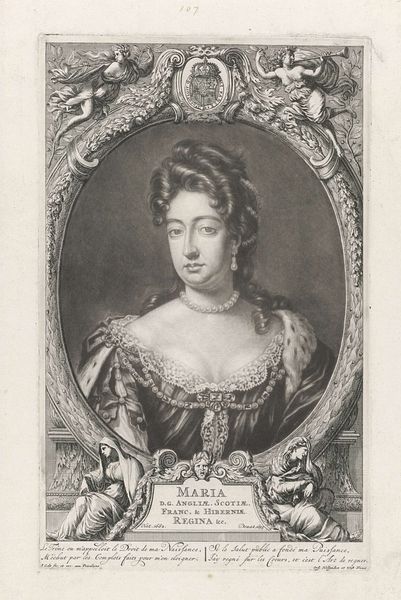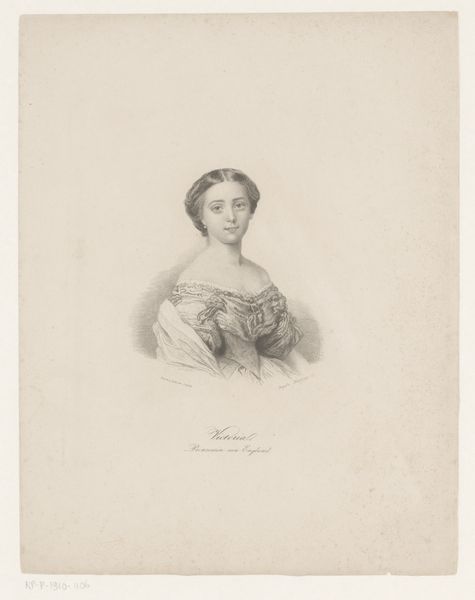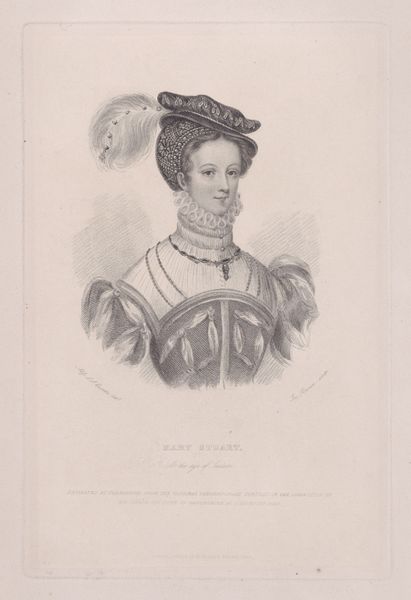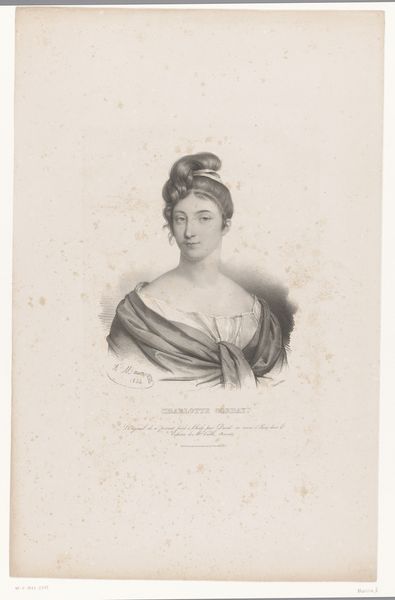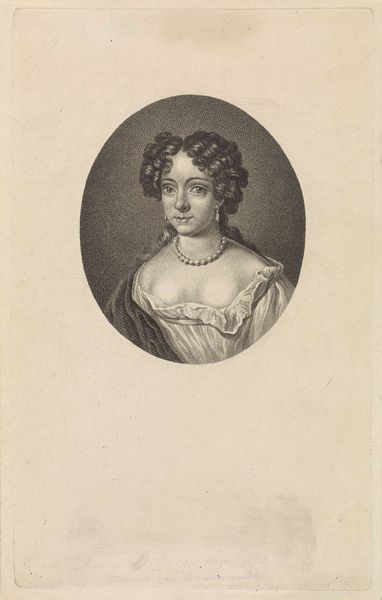
drawing, print, graphite, engraving
#
portrait
#
pencil drawn
#
drawing
#
neoclacissism
# print
#
old engraving style
#
pencil drawing
#
graphite
#
pencil work
#
engraving
Dimensions: height 309 mm, width 231 mm
Copyright: Rijks Museum: Open Domain
Editor: This is a portrait of Anna Paulowna Romanowa, an engraving by Willem Hendrik Hoogkamer, dating sometime between 1816 and 1864. The linear quality gives it a formal feel. How do you interpret this work? Curator: Considering the social context of this piece, what strikes me is its role in constructing and disseminating a particular image of royalty. This engraving, reproduced and distributed, solidifies Anna Paulowna's position as a symbol of power, especially following a turbulent period in Dutch history. Notice how the artist employs neoclassical aesthetics – the idealized features, the formal pose – to evoke notions of stability, order, and legitimate rule. What does this visual language suggest about the function of portraiture at this time? Editor: I hadn't really thought about it like that. It’s not just a picture; it’s propaganda almost? Curator: Precisely! The piece can be seen as a tool to shape public perception, reinforcing the image of the monarchy and its connection to national identity. Also, think about who had access to these images and in what contexts they were circulated. Understanding this unveils layers of meaning connected to class and political affiliations. How does this impact your understanding of this work? Editor: That definitely gives me a lot to think about regarding how art participates in power structures. It’s much more than just an aesthetically pleasing portrait. Curator: Exactly. By examining these historical and cultural influences, we recognize that a portrait like this functions within complex networks of social meaning, far beyond a mere representation of a person. Hopefully it opens you to a wider world.
Comments
No comments
Be the first to comment and join the conversation on the ultimate creative platform.
